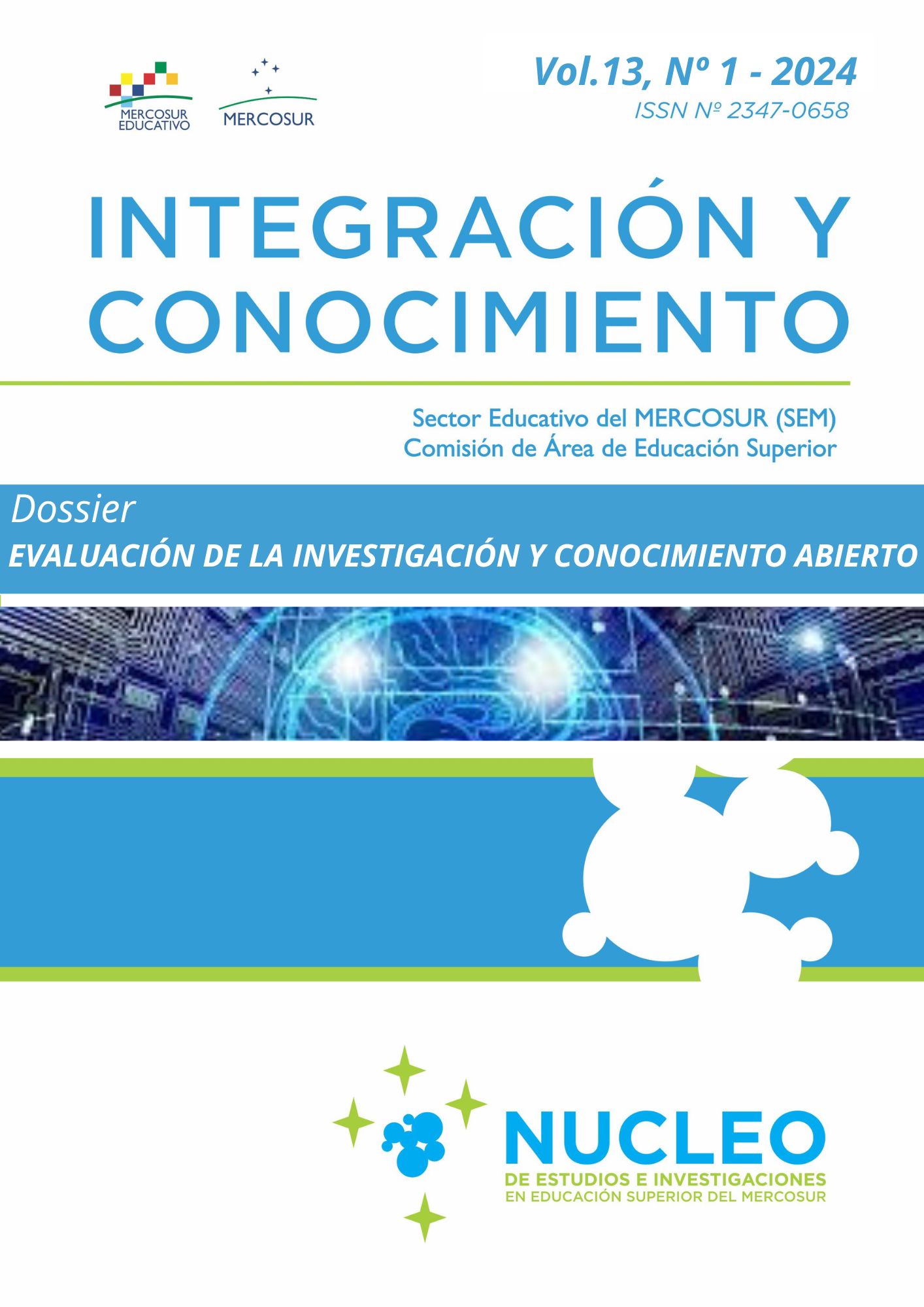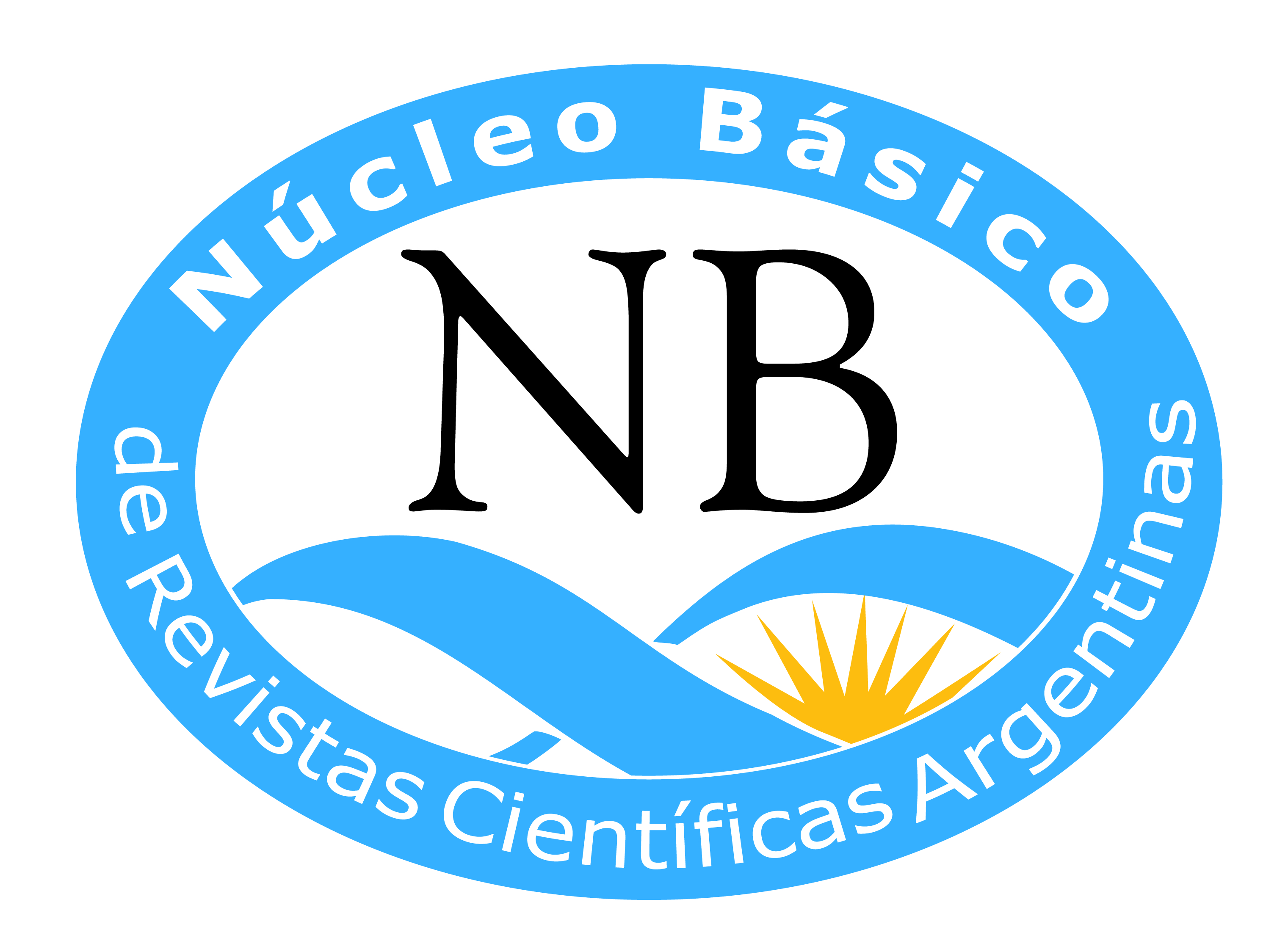OPEN ACCESS IN THE CARIBBEAN: A BIBLIOMETRIC ANALYSIS (2000-2020)
DOI:
https://doi.org/10.61203/2347-0658.v13.n1.44214Keywords:
Open access, scholarly communications, Insular CaribbeanAbstract
In the early 2000s attendees of a meeting in Budapest drafted the first formal declaration advocating Open Access to scientific and scholarly literature. After that, there have been many other discussions, declarations and key initiatives on Open Access to research publications around the world. Despite the Open Access movement is now over twenty years old and growing interest to remove barriers to peer-reviewed scholarly literature, there is not up-to-date and reproducible studies assessing the prevalence and characteristics of Open Access specifically in the Insular Caribbean Region. The purpose of this study is to trace outgrowth and development of Open Access in this region over the last two decades. The bibliographic data collected was extracted from Scopus. We elaborated indicators related about Open Access typology, evolution, most productive countries, institutional affiliation, documents by sponsors, journals, languages, and thematic areas. The findings disclosed that Open Access publishing is increasingly in the region and the golden route has experienced greater advances. Cuba and Puerto Rico stand out with the highest open production. We hope our analysis might serve as a basis for scientific institutions of the region to implement policies and initiatives supporting Open Access models of scientific communication.
Downloads
References
Akterian, S. G. (2018). Towards Open Access Scientific Publishing. Biomedical Reviews, 28, 125-133. Recuperado de https://doi.org/10.14748/bmr.v28.4459
Appel, A. L., Lujano, I., Albagli, S. (2018). Open Science Practices Adopted by Latin American & Caribbean Open Access Journals. ELPUB 2018 Toronto, Canada. Recuperado de https://hal.archives-ouvertes.fr/hal-01800164v3
Babini, D. (2011). Open Access to Latin American and Caribbean scientific production: Identification of main institutions for regional integration strategies. Revista iberoamericana de ciencia tecnología y sociedad, 6(17), 31-56. Recuperado de http://eprints.rclis.org/19085/
Babini, D., y Rovelli, L. (2020). Tendencias recientes en las políticas científicas de ciencia abierta y acceso abierto en Iberoamérica. CLACSO-Fundación Carolina. Recuperado de http://eprints.rclis.org/40955/
Bordons, M., González-Albo, B., y Moreno-Solano, L. (2023). Improving our understanding of open access: How it relates to funding, internationality of research and scientific leadership. Scientometrics, 128(8), 4651–4676. Recuperado de https://doi.org/10.1007/s11192-023-04726-1
Carvajal Tapia, A. E., y Carvajal Rodríguez, E. (2019). Scientific Production in Health Sciences in Latin American Countries, 2006-2015: Analysis. Revista Interamericana de Bibliotecología, 42(1), 15–21. Recuperado de https://doi.org/10.17533/udea.rib.v42n1a02
Casate Fernández, R., y Senso Ruiz, J. A. (2017). Cuban open access scientific production in Scopus in the period 2010-2014. Revista Cubana de Información en Ciencias de la Salud (ACIMED), 28(1), 2–25. Recuperado de https://www.medigraphic.com/cgi-bin/new/resumenI.cgi?IDARTICULO=69995
Casate Fernández, R., y Senso Ruiz, J. A. (2018). Open Access in Cuba: current situation and proposed actions to increase access and use of research results. Alcance, 7(15), 82–101. Recuperado de http://scielo.sld.cu/scielo.php?script=sci_arttext&pid=S2411-99702018000100006
Collazo Reyes, F. (2014). Growth of the number of indexed journals of Latin America and the Caribbean: The effect on the impact of each country. Scientometrics, 98(1), 197–209. Recuperado de https://doi.org/10.1007/s11192-013-1036-2
Costa, M. P., y Leite, F. C. L. (2016). Open access in the world and Latin America: A review since the Budapest Open Access Initiative. Transinformação, 28, 33–46. Recuperado de https://doi.org/10.1590/2318-08892016002800003
Chung, J., y Tsay, M. (2017). A Bibliometric Analysis of the Literature on Open Access in Scopus. Qualitative And Quantitative Methods In Libraries, 4(4), 821-841. Recuperado de http://www.qqml.net/index.php/qqml/article/view/282
Costa, M., y Leite, F. C. (2016). Open Access in the world and Latin America: A review since the Budapest Open Access Initiative. Transinformação, 28(1), 33-46 Recuperado de https://periodicos.puc-campinas.edu.br/transinfo/article/view/6014
Demeter, M., Jele, A., y Major, Z. B. (2021). The International Development of Open Access Publishing: A Comparative Empirical Analysis Over Seven World Regions and Nine Academic Disciplines. Publishing Research Quarterly, 37(3), 364–383. Recuperado de https://doi.org/10.1007/s12109-021-09814-9
Fernández Eysseric, M. M., y Murillo González, D. (2019). Bibliometric analysis of open access journals of Central America, the Caribbean and Mexico based in DOAJ and indexers Latin Americans. Ingeniería Solidaria, 15(1), 1–21. Recuperado de https://doi.org/10.16925/2357-6014.2019.01.06
Gargouri, Y., Larivière, V., Gingras, Y., Carr, L., y Harnad, S. (2012). Green and Gold Open Access Percentages and Growth, by Discipline. arXiv:1206.3664. Recuperado de https://doi.org/10.48550/arXiv.1206.3664
Harnad, S. (2011) Open Access to Research: Changing Researcher Behavior Through University and Funder Mandates. JEDEM Journal of Democracy and Open Government 3 (1), 33-41. Recuperado de https://eprints.soton.ac.uk/272401/
Holbrook, J. Capacities of Anglophone Caribbean countries for collecting and analysing indicators on science, technology and innovation. Inter-American Development Bank, Washington DC. Recuperado de http://docs.politicascti.net/documents/Doc%2005%20-%20regional%20caribe.pdf
Iton, I., e Iton, A. (2016). Open access and the Caribbean academic: An exploratory investigation of the adoption of this medium for publishing among science faculty of The University of the West Indies. IFLA Journal, 42(1), 25–35. Recuperado de https://doi.org/10.1177/0340035215616977
León González, J. L., Socorro Castro, A. R., Librada Cáceres Mesa, M., y Pérez Maya, C. J. (2020). Scientific production in Latin America and the Caribbean in the period 1996-2019. Revista Cubana de Medicina Militar, 49(3), e573. Recuperado de http://scielo.sld.cu/scielo.php?script=sci_arttext&pid=S0138-65572020000300013&lng=es&tlng=es.
López Marrero, T., Yamane, K., Heartsill Scalley, T., y Villanueva Colón, N. (2012). The Various Shapes of the Insular Caribbean: Population and Environment. Caribbean Studies, 40(2),17-37. Recuperado de https://www.redalyc.org/articulo.oa?id=39226915002
Minniti, S., Santoro, V., y Belli, S. (2018). Mapping the development of Open Access in Latin America and Caribbean countries. An analysis of Web of Science Core Collection and SciELO Citation Index (2005–2017). Scientometrics 117, 1905–1930 Recuperado de https://doi.org/10.1007/s11192-018-2950-0
Morillo, F. (2020). Is open access publication useful for all research fields? Presence of funding, collaboration and impact. Scientometrics, 125(1), 689–716. Recuperado de https://doi.org/10.1007/s11192-020-03652-w
Moya Anegón, F., Chinchilla Rodríguez, Z., Vargas Quesada, B., Corera Álvarez, E., Muñoz Fernández, F. J., González Molina, A., y Herrero Solana, V. (2007). Coverage analysis of Scopus: A journal metric approach. Scientometrics, 73(1), 53–78. Recuperado dehttps://link.springer.com/article/10.1007/s11192-007-1681-4
Piwowar, H., Priem, J., Larivière, V., Alperin, J. P., Matthias, L., Norlander, B., Farley, A., West, J., y Haustein, S. (2018). The state of OA: A large-scale analysis of the prevalence and impact of Open Access articles. PeerJ, 6, e4375. Recuperado de https://doi.org/10.7717/peerj.4375
Pradhan, P. (2016). Science Mapping and Visualization Tools used in Bibliometric & Scientometric Studies: An Overview. INFLIBNET Newsletter, 23(4), 19-33. Recuperado de https://ir.inflibnet.ac.in/bitstream/1944/2132/1/INFLIBNET%20NEWSLETTER%20Vol.23%20No.%204%20(October-%20December%202016).pdf
Santin, D. M., y Caregnato, S. E. (2020). Caribbean participation in regional science: an overview and comparative analysis of Cuba, Jamaica and Trinidad and Tobago. Revista Cubana de Información en Ciencias de la Salud, 31(4), e1605. Recuperado de http://scielo.sld.cu/scielo.php?script=sci_arttext&pid=S2307-21132020000400007&lng=es&tlng=es.
Seo, J.W. (2023). Changes in the absolute numbers and proportions of open access articles from 2000 to 2021 based on the Web of Science Core Collection: A bibliometric study. Science Editing, 10(1), 45–56. Recuperado de https://doi.org/10.6087/kcse.296
Severin, A., Egger, M., Eve, M. P., y Hürlimann, D. (2018). Discipline-specific open access publishing practices and barriers to change: An evidence-based review. F1000Research, 7, 1925. Recuperado de https://doi.org/10.12688/f1000research.17328.2
Simard, M. A., Ghiasi, G., Mongeon, P., y Larivière, V. (2022). National differences in dissemination and use of open access literature. PLOS ONE, 17(8), e0272730. Recuperado de https://doi.org/10.1371/journal.pone.0272730
Suárez-Balseiro, C. A., Maura-Sardó, M., Holguino, J. C., Suárez-Balseiro, C. A., Maura-Sardó, M., y Holguino, J. C. (2020). Análisis bibliométrico de la actividad científica de la Universidad de Puerto Rico durante el periodo 2000-2015. Revista Interamericana de Bibliotecología, 43(2). Recuperado de https://doi.org/10.17533/udea.rib.v43n2ei5
Troncoso, J. D. (2011). Role of Open Access in the emergence and consolidation of refereed journals in Latin America and the Caribbean. Revista Educación Superior y Sociedad (ESS), 16(2), Article 2. Recuperado de https://doi.org/10.54674/ess.v16i2.657
UMAIPUR (2022). Unit for Monitoring and Analysis of Scientific Research in Puerto Rico. Recuperado de https://umaipur.uprrp.edu/
University of Puerto Rico (2023). Policy for open access to the results of creative work and research produced at the University of Puerto Rico. Certification nº. 113, 2019-2020. Recuperado de https://www.juntagobierno.upr.edu/wp-content/uploads/sites/16/2020/05/Pol_Acc
eso_Abierto_Labor_Crea_Invest_113_-2019-2020.pdf
Downloads
Published
Issue
Section
License
Copyright (c) 2024 Integración y Conocimiento

This work is licensed under a Creative Commons Attribution-NonCommercial-ShareAlike 4.0 International License.
Authors who have publications with this journal accept the following terms:
a. Authors shall retain their copyright and guarantee the journal the right of first publication of their work, which shall simultaneously be subject to the Creative Commons License of Recognition which allows third parties to share the work as long as its author is indicated and its first publication is this journal.
b. Authors may adopt other non-exclusive licensing agreements for the distribution of the published version of the work (e.g., depositing it in an institutional telematic archive or publishing it in a monographic volume) provided that the initial publication in this journal is indicated.
c. Authors are allowed and encouraged to disseminate their work via the Internet (e.g. in institutional telematic archives or on their website) after publication of the article, which may lead to interesting exchanges and increased citations of the published work. (See The Effect of Open Access).



